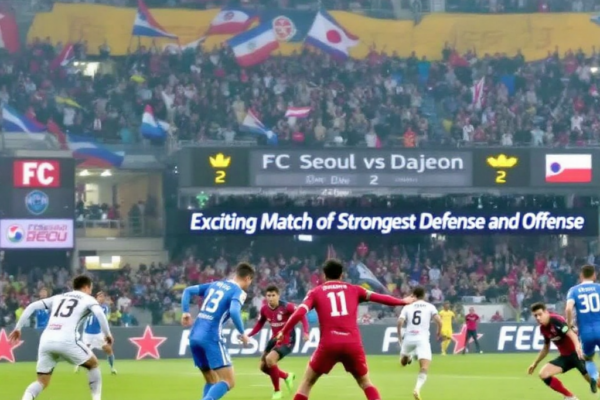A Moment of Shock and Mourning: The Passing of Pope Francis
On April 21, 2025, a single line of news moved the world to tears. Pope Francis, the first pontiff from South America and a symbol of change, has passed away. But why did his death send shockwaves like never before?
The news of Pope Francis’s passing brought profound sorrow not only to Catholics but to people across the globe. He passed away at the age of 88, having led the Church and society through transformative changes during his 12-year tenure.
His final moments were peaceful. After a 38-day hospitalization, he was discharged, only to quietly close his eyes at the Vatican just 28 days later. His devoted spirit, praying and ministering to believers until the end, deeply moved countless hearts.
The death of Pope Francis means far more than the loss of a religious leader. He spearheaded reform and renewal within the Catholic Church and raised his voice for the marginalized and vulnerable. Especially notable were his inclusive stance toward the LGBTQ+ community and his strong commitment to protecting immigrants—stances that set him apart from traditional Church positions.
His sudden passing has thrown the future of the Catholic Church into uncertainty. Questions abound about how the reforms he championed will continue and what direction the new pope will take.
World leaders issued statements of condolence, honoring his legacy. The UN Secretary-General eulogized him as a “symbol of humanity and peace,” while heads of state across nations expressed gratitude for his dedication and efforts.
Pope Francis’s death has caused ripples far beyond the Catholic Church, impacting the entire world. His legacy will continue to influence our society for years to come. Now, it is time for us to reflect on his messages and unite in striving for a better world.
From South America to the Vatican: The Pope on a Path of Boldness
A friend to the poor and a breaker of continental boundaries, the Pope’s journey from the alleys of Argentina to the Vatican’s St. Peter’s Square holds a hidden story of his ascension.
Pope Francis’s journey began in the harsh conditions of South America. While ministering in the slums of Buenos Aires, Argentina, he witnessed and experienced the suffering of the poor firsthand. These encounters deeply influenced his faith and sense of social responsibility.
His election as pope was a groundbreaking choice. Breaking the Europe-centered tradition, his appearance on the balcony of St. Peter’s Basilica as the first pope from South America shocked the world with a fresh, unprecedented impact.
Pope Francis’s inauguration ushered in a new breeze within the Catholic Church. His humble character and zeal for reform resonated with many believers. Especially, the papal name ‘Francis’—evoking St. Francis of Assisi, devoted to the poor—clearly reflected his pastoral direction.
Even after arriving at the Vatican, Pope Francis held firmly to his principles. Choosing a modest room over the luxurious papal apartment, and simple attire instead of grand robes, he embodied his vision of a “poor church” and a “church for the poor.”
Pope Francis’s journey was more than a geographical transition; it was a voyage toward renewal and transformation of the Church. The insight and compassion gained from the streets of South America evolved into Vatican policies, offering new hope and challenges to Catholics worldwide.
Controversy and Courageous Reform: Policies Breaking Boundaries
“Homosexuality is not a crime.” This one statement shook the world. Pope Francis’ groundbreaking remark was an effort to find a new balance between the Catholic Church’s long-standing traditions and the demands of modern society. His policies went beyond mere declarations, aiming for tangible change. His approaches to immigration, peace, and social minorities offered hope to many while sparking intense controversy inside the Church.
LGBTQ+ Rights: The First Step Toward Inclusion
Pope Francis’ attitude towards the LGBTQ+ community was revolutionary. His words, “If there is good will, I will not condemn,” provided profound comfort to those long subjected to discrimination and prejudice. At the same time, this stance provoked resistance from conservative Church members. Rather than signaling a fundamental shift in doctrine, the Pope’s position can be understood as an attempt to recognize and embrace the dignity of every human being.
Protecting Immigrants: Love That Crosses Borders
The Pope’s call to “donate to charity” went beyond mere advice, urging practical and compassionate action. His approach to the issue of undocumented immigrants was an expression of humanity that transcended national borders. Despite the political sensitivity of the topic, Pope Francis conveyed the powerful message that human value supersedes legal status.
Building Peace: Direct Visits to Conflict Zones
By personally visiting conflict-torn regions like Iraq and Myanmar, Pope Francis carried the message of peace firsthand. This went well beyond symbolic declarations, showcasing his commitment to pursue peace through concrete actions. His expressed intention to visit North Korea can also be seen in this light. These steps exemplify his effort to actively wield his influence as a religious leader for peacebuilding.
The True Meaning of Reform
Pope Francis’ policies were not merely about revitalizing the Church’s image. His challenges stemmed from a belief that the Catholic Church must respond more sensitively to modern societal needs and provide hope to many through real change.
His reforms were imperfect, encountering significant controversy and resistance. Yet, the very challenges and debates these reforms sparked created opportunities for mutual growth between the Church and society. Pope Francis’ legacy will continue to profoundly influence both the Catholic Church and the global community for years to come.
The Pope’s Words Move the World: Quotes and Beliefs
“I am a great sinner.” With this shocking confession, Pope Francis captured the attention of the entire world. Uttered soon after ascending to the papacy, these words revealed his humility and humanity, touching the hearts of believers and non-believers alike.
Pope Francis’s language goes beyond conveying religious doctrine. His words confront the issues of modern society, comfort the marginalized, and carry a message of global peace.
A Voice for the Marginalized
The Pope has consistently raised his voice for society’s vulnerable. Emphasizing the “Church for the poor,” he has worked to alleviate economic inequality. His call to “donate to charity” offers practical solutions to immigration challenges.
A Message of Inclusion and Reconciliation
His stance on the LGBTQ+ community diverges from traditional Catholic views. Declaring that “homosexuality is not a crime” gave hope to many and sparked controversy within the Church.
Diplomatic Language for Peace
Each time Pope Francis visits conflict zones, he stresses, “Peace, we need peace.” His personal visits to dangerous regions such as Iraq and Myanmar have delivered a message of peace that resonates far beyond words.
The Impact of the Pope’s Words on the World
Pope Francis’s language transcends simple religious teachings, wielding global influence. His messages have fostered interfaith dialogue, heightened awareness of social justice, and underscored the critical importance of environmental protection.
Sometimes gentle, sometimes powerful, the Pope’s words have moved the world. His speech is received not just as the voice of a religious leader, but as a message for all humanity. The legacy of Pope Francis will be remembered through his words as deeply as through his actions.
Legacy and a New Horizon for the Church: The Revolutionary Path of Pope Francis
A bold break and change woven into a solid tradition. What ripple effects will Pope Francis’s legacy create for the Catholic Church and the world? His reformative journey is redrawing the future of the Church with fresh perspectives.
A Spirit of Inclusion and Reconciliation
Pope Francis has shown an open attitude towards groups traditionally marginalized by the Church, such as LGBTQ individuals, divorcees, and refugees. This inclusive approach has lowered the Church’s barriers, opening the door for more people to join the faith community.
Emphasis on Social Justice and Environmental Protection
The Pope’s voice on key contemporary issues like poverty eradication, climate change response, and addressing economic inequality has resonated globally. His encyclical Laudato Si’ highlights the religious responsibility toward environmental issues and underscores the importance of sustainable development.
Church Reform and Enhanced Transparency
Internal reforms, including Vatican financial restructuring and the crackdown on clerical misconduct, have contributed to raising the Church’s credibility. These efforts lay the foundation for a more transparent and accountable Church governance in the future.
Interreligious Dialogue and Promotion of Peace
Active dialogue and cooperation with other religions such as Islam and Judaism have played a pivotal role in resolving interfaith conflicts and fostering world peace. Such endeavors will contribute to building a more inclusive and peaceful global order moving forward.
The Direction of the Church’s Future
Pope Francis’s legacy has pointed the Catholic Church toward a path of greater responsiveness to contemporary societal demands and proactive engagement in social issues. This marks a turning point where the Church steps beyond being a purely spiritual leader to becoming an agent of social transformation.
Pope Francis’s revolutionary footsteps have opened a new horizon for the Catholic Church. How this legacy will be inherited and advanced remains a captivating focus for the future changes within the Church and the world.




